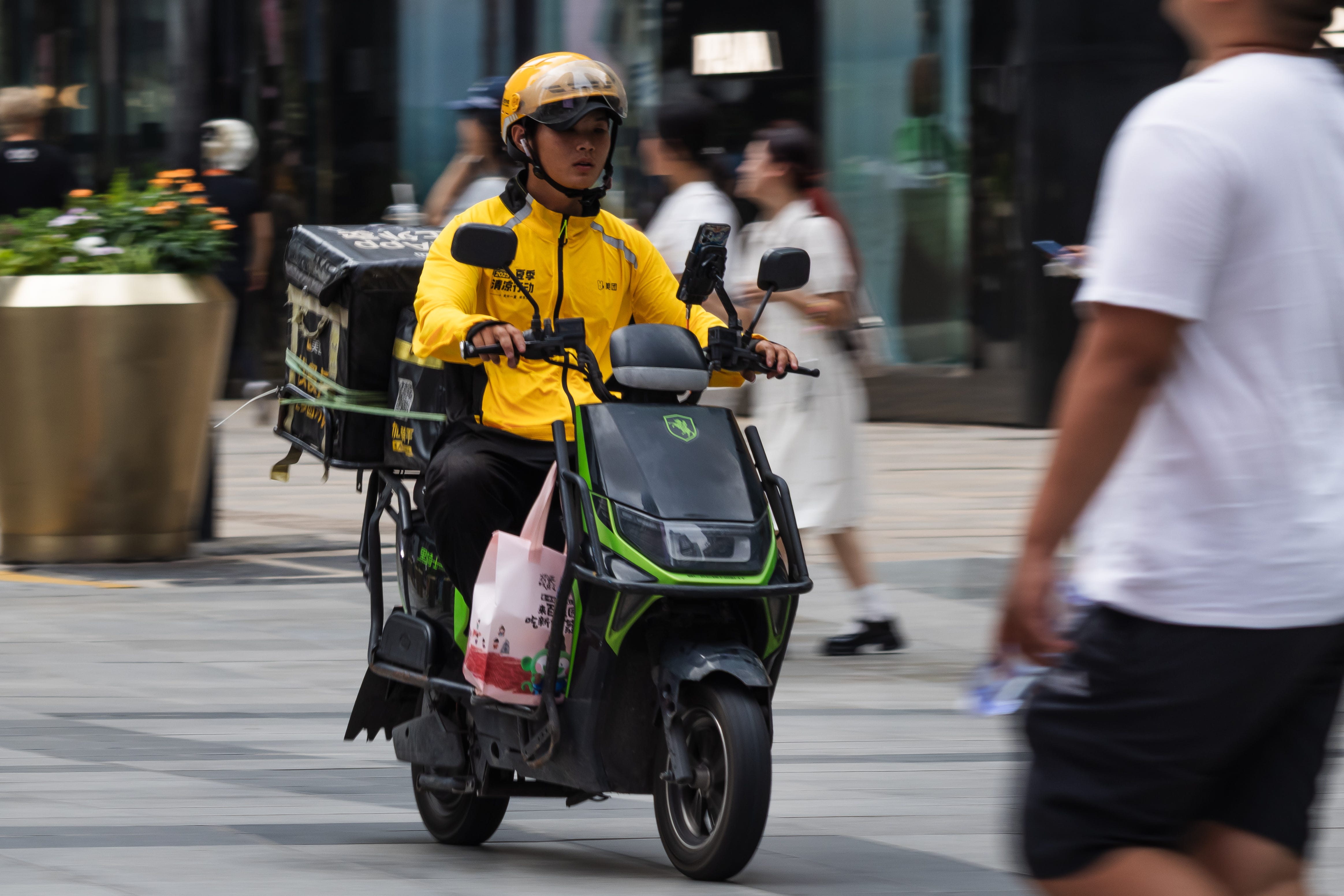
Cheng Xin/Getty Images
China’s tech rebound, sparked by AI buzz around DeepSeek earlier this year, has been interrupted by a bruising food delivery war that hammered the shares of Alibaba, JD.com, and Meituan — three of the country’s biggest e-commerce players.
The intense rivalry among the three tech giants has showered Chinese consumers with dirt-cheap indulgences — bubble tea and lattes for as little as 1 Chinese yuan, or $0.14, and meals dropped at their door in under 30 minutes.
It’s not just food. As growth in China’s traditional e-commerce slows, companies are racing into the new fast-delivery segment.
“It can be flowers, it can be medications, it can be toiletries,” Jason Yu, the managing director for Greater China at consumer insights company Kantar Worldpanel, told Business Insider.
But the golden age of cheap convenience is nearing an end, thanks to a race-to-the-bottom price war that’s even drawn the government’s attention.
An expensive battle
Behind the consumer bonanza lies a costly fight.
JD.com’s official push into food delivery in February triggered the latest escalation, forcing Meituan and Alibaba to respond with deeper subsidies.
The three platforms have poured big money into discounts, eroding profits and rattling investors.
On Thursday, Meituan — which controls about half of China’s food delivery market — warned of losses this quarter due to “irrational competition,” sending its shares plunging as much as 13% in one day. The stock is down 33% so far this year.
JD.com reported earlier this month that its net profit had halved for the quarter ending June. The company’s stock is down 12.3% this year.
Alibaba is posting its fiscal first-quarter earnings later on Friday, but the rivalry has also affected its share price. The New York-listed stock is down about 20% from a March peak, though it is still up 41% this year to date.
The price war may have benefited consumers, but it has also drawn scrutiny from Beijing. Regulators are cracking down on excessive competition as the world’s second-largest economy battles a yearslong property crisis and deflation.
In May and June, China’s top market regulator summoned Alibaba, Meituan, and JD.com to demand an end to “disorderly competition.” In response, the trio pledged restraint.
End of an era
Consumers may now be facing the end of an era, as one-yuan coffees and near-free meals give way to more realistic delivery costs.
“The low prices will not persist as the business model is fundamentally unsustainable, with companies burning billions in losses,” said MingYii Lai, a strategy consultant at Daxue Consulting.
“Both financially and also politically, I don’t think it’s in their interest to continue that aggressive subsidy war,” said Kantar Worldpanel’s Yu.
Now, the most extreme promotions — like near-free burgers or tea — have started to fade, though weekend discounts remain common, Yu said.
Yu said subsidies are likely to vanish within the next year or two, as platforms count on consumer behavior becoming entrenched.
“Once the consumer’s habit is there, then actually all these subsidies will be withdrawn, and then consumers will have to pay a fair price for delivery,” he said.
The post China’s era of one-yuan lattes and cheaply delivered meals is cratering appeared first on Business Insider.




